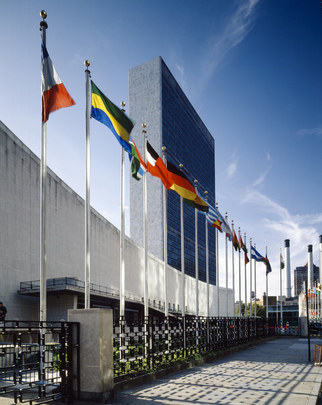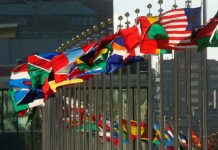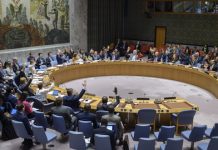Member States reach agreement on pandemic treaty: WHO
Member States of the World Health Organization (WHO) have agreed a draft treaty to keep the world safe from future pandemics – a milestone after more than three years of hard-fought negotiations.
The text was finalized early on Wednesday in Geneva by a WHO Intergovernmental Negotiating Body.
The INB was formed in December 2021 at the height of the COVID-19 pandemic with the aim to strengthen pandemic prevention, preparedness and response.
WHO chief Tedros Adhanom Ghebreyesus remarked that “the nations of the world made history in Geneva today.”
He said that “not only did they put in place a generational accord to make the world safer,” but they also demonstrated “that multilateralism is alive and well”.
The agreement includes proposals to boost global collaboration on prevention and preparedness, strengthen health systems, create a fair system for pathogen access and benefit-sharing, and to build a skilled global health emergency workforce.
It respects national sovereignty and does not give WHO the authority to direct, order, change or prescribe national laws or policies, nor does it oblige States to take specific actions.
The document will be submitted to the World Health Assembly for consideration and adoption when it meets in Geneva this May.
Global growth projected to slow to 2.3 per cent, UN trade body reports
Global growth is expected to slow to 2.3 per cent this year due to escalating trade tensions and uncertainty, the UN trade and development body UNCTAD said in a new report published on Wednesday.
The projection is below the 2.5 per cent threshold widely viewed as signalling a global recession.
The report cited mounting threats including trade policy shocks, financial volatility and a surge in uncertainty.
The slowdown will affect all nations and UNCTAD expressed continued concern for developing countries, particularly the most vulnerable economies.
Many low-income countries face a “perfect storm” of worsening external financial conditions, unsustainable debt and weakening domestic growth.
The report also points to the growth of trade among developing countries – known as South-South trade – as a source of resilience.
It currently accounts for roughly one third of global trade and offers opportunities for many developing countries.
Sharp rise in grave violations against children in Myanmar
The escalation of conflict and deteriorating security in Myanmar, especially since the military seized power four years ago, has had a devastating impact on the country’s children.
The finding comes in a new UN report which reveals that some 5,141 grave violations against more than 4,000 children were verified between July 2020 to December 2023, representing a 400 per cent increase over the previous reporting period.
Most of the grave violations, nearly 80 per cent, were at the hands of the Myanmar armed forces and affiliated militias, while 10 per cent were attributed to armed groups and ethnic armed organizations.
The recruitment and use of children was the most verified grave violation, accounting for 40 per cent, with almost 2,200 youngsters affected. It was followed by killing and maiming, and abduction.
The report was issued by the UN Secretary-General’s Special Representative for Children and Armed Conflict, Virginia Gamba, who called on all parties to end and prevent grave violations against children and ensure that perpetrators are held to account.
Dianne Penn, UN News
And don’t forget you can hear more of our news and interviews by going to our website and audio hub.
Music composed and produced by Joachim Harris. All rights reserved .
Source of original article: United Nations (news.un.org). Photo credit: UN. The content of this article does not necessarily reflect the views or opinion of Global Diaspora News (www.globaldiasporanews.com).
To submit your press release: (https://www.globaldiasporanews.com/pr).
To advertise on Global Diaspora News: (www.globaldiasporanews.com/ads).
Sign up to Global Diaspora News newsletter (https://www.globaldiasporanews.com/newsletter/) to start receiving updates and opportunities directly in your email inbox for free.



























